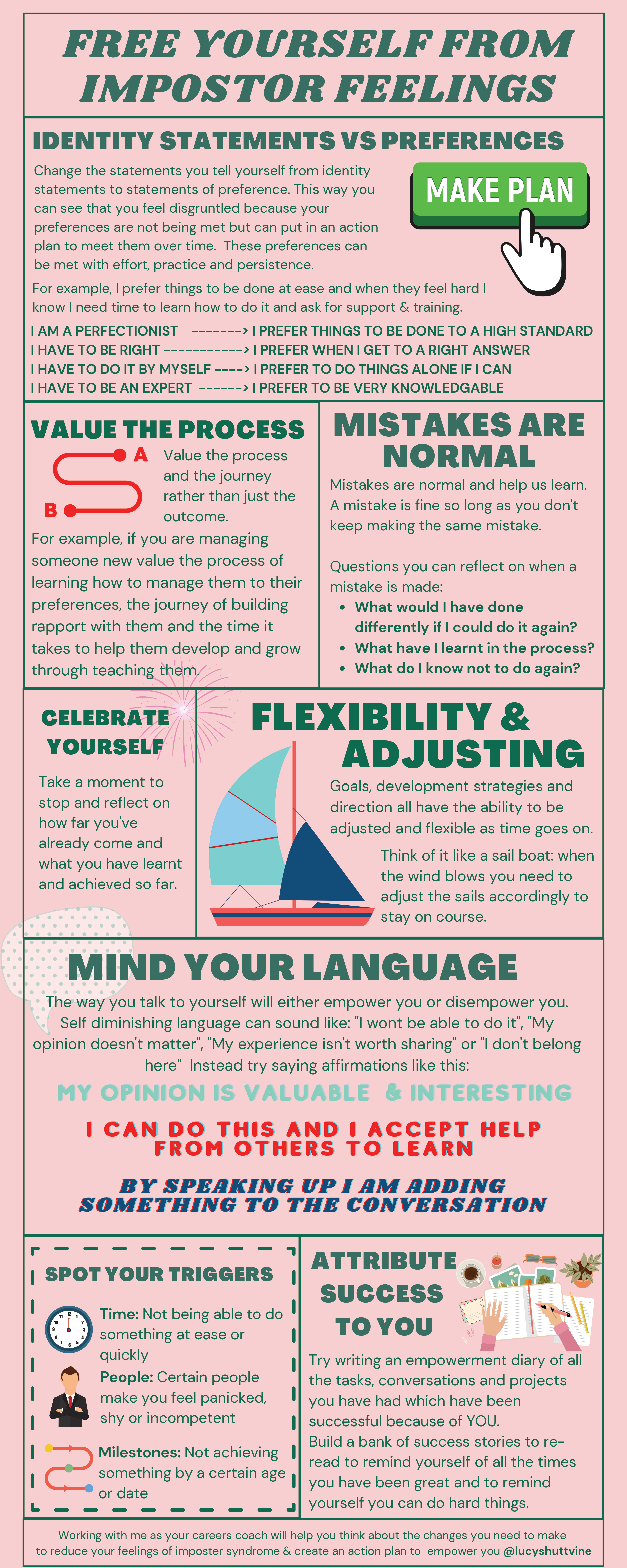You are not a fraud: free yourself from impostor feelings
The definition of an impostor is someone who deceives others and pretends to be someone else for their own gain. Is this really you?
I thought not. But then why do so many of us experience impostor feelings at work, or even self-identify as having “really bad impostor syndrome”? If you know that you are not pretending to be someone else for fraudulent gain then it should be easy to shake off these feelings, but it rarely is.
I see clients all the time who tell themselves stories about not being good enough at work and suffer from a real fear that they will be ‘found out’, simply because they don’t know how to do everything to the highest level of competence. These clients are often stuck in comparison traps and have come to believe that everyone else at work knows more than they do, which is never true! It is especially common to experience these feelings when applying for new role or after achieving a promotion.
To help you break free of impostor feelings I’ve put together an infographic full of tools and exercises to help you embrace your unique skillset, thoughts and abilities and to celebrate yourself and your achievements.
My favourite tip here is to write an empowerment diary of all the times that a task, project, conversation or meeting have gone well because of your unique presence. Building a bank of your personal success stories is a great antidote to social media, where we are often served curated images of other people’s successes and milestone achievements which can exacerbate impostor feelings.
When you are suffering from impostor feelings, it is easy to get stuck in a spiral of negative self-talk. Building yourself up with affirmations and kind words can work wonders. Download this infographic and keep it somewhere visible so you can try these techniques when you are feeling disempowered or like your opinion doesn’t matter.
If you feel like your impostor feelings are not manageable alone, then a coaching conversation could help you to change your mindset and appreciate your unique value. Find out more about my one-to-one coaching services for building confidence.

